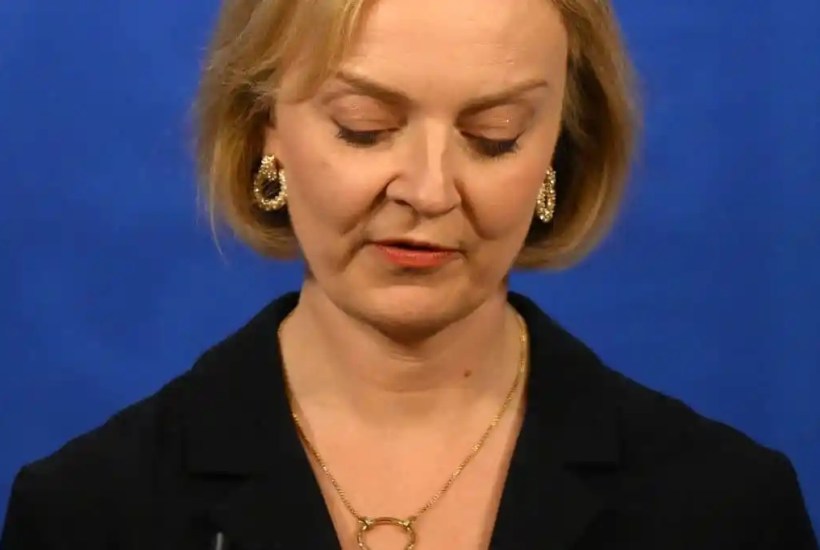‘I assumed upon entering Downing Street that my mandate would be respected and accepted. How wrong I was.’ This is the crux of Liz Truss’s defence of her 49 days in Downing Street: the shortest-ever stint for a Prime Minister. It is also the start of her attempt at a political comeback.
Already a subscriber? Log in
Subscribe for just $2 a week
Try a month of The Spectator Australia absolutely free and without commitment. Not only that but – if you choose to continue – you’ll pay just $2 a week for your first year.
- Unlimited access to spectator.com.au and app
- The weekly edition on the Spectator Australia app
- Spectator podcasts and newsletters
- Full access to spectator.co.uk
Or





















Comments
Don't miss out
Join the conversation with other Spectator Australia readers. Subscribe to leave a comment.
SUBSCRIBEAlready a subscriber? Log in